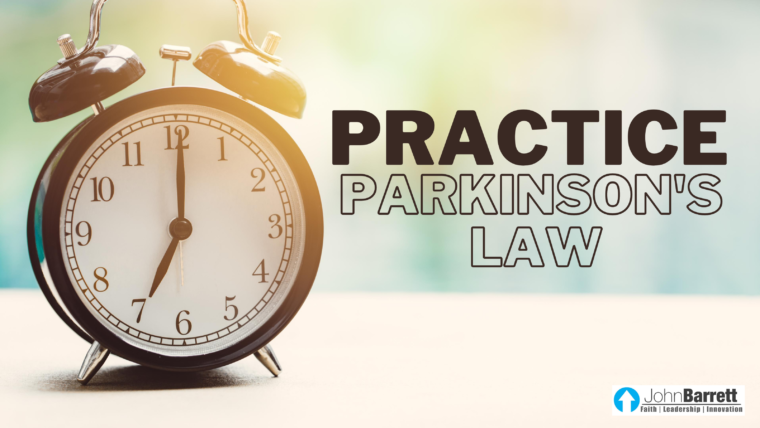
I am incredibly grateful for 1955 because it was the year that changed my life. No, I was not alive then, but what happened revolutionized the world’s entire outlook about time. And now, in your current time, it’s going to change everything for you.
Cyril Parkinson, a British naval historian, and author discovered a fantastic truth while working in civil service. In the year 1955, he published his observance in a humorous essay written for a publication called The Economist.
The first sentence in the article sums up the concept that has since changed everything we know about productivity. Parkinson’s first line states, “Work expands so as to fill the time available for its completion.” He noted that as bureaucracies expanded, they became more inefficient filling up more time devoted to unnecessary functions. He then applied this observation to a variety of other situations, realizing that as the size of something increased, its efficiency dropped.
This truth is, no matter how much extra you have you’ll fill it up with something. Think of money, the more you get, the more you tend to spend, it’s all relative. Think about getting a bigger home, the more room you have, the more you tend to fill it to the max. No matter how much capacity you have, you will crowd it with more stuff.
Parkinson’s Law is an incredible principle that, when used in productivity, can get you back hours each day. Time will shrink or expand based on how you use it. If I told you, you have two hours to pack a suitcase for a business trip; it will probably take you all two hours. You would allow distractions, and perhaps be indecisive as you thought about what to pack. But if I were to surprise you with a free trip to say, Disney World, but you had to pack in only 20 minutes to catch the flight, I guarantee you would make it happen. Why? Because you had a clear boundary and pushed yourself to work within it. This is the power of Parkinson’s Law. You see, the more time you give yourself to do something, the less efficient you become, and the greater the chance you will fill the entire time.
Our brains were created to be efficient in taking the path of least resistance to preserve energy. This is a great thing but can work against you if unchecked. The path of least resistance can become the long path of laziness and apathy. However, when we give ourselves deadlines and borders, we begin to activate a whole new level of motivation. Time constraints activate creativity. Like a stream of water needs tight borders to create a current, so our time needs parameters. If there are no parameters, we turn into a motionless pond of stagnation.
Too many people get lost in tasks that are taking too long; thus, they are wasting precious time. Over-planners get killed by this phenomenon. When you start to work too far in advance, it can actually slow you down. People also tend to get more stressed as they create a world that has to move slowly in order to feel confident and in control. Therefore, anytime something comes up last minute, they freak out, believing they can’t get it done. Certainly, we need to prepare and be ahead of the game. Still, over-planning and over-scheduling can be just as detrimental as lack of planning, especially in a market that is ever-increasing in speed. People that over plan actually end up underproducing. We have to develop a keen ability to move fast and be decisive by creating boundaries around our time.







Please note: I reserve the right to delete comments that are offensive or off-topic.